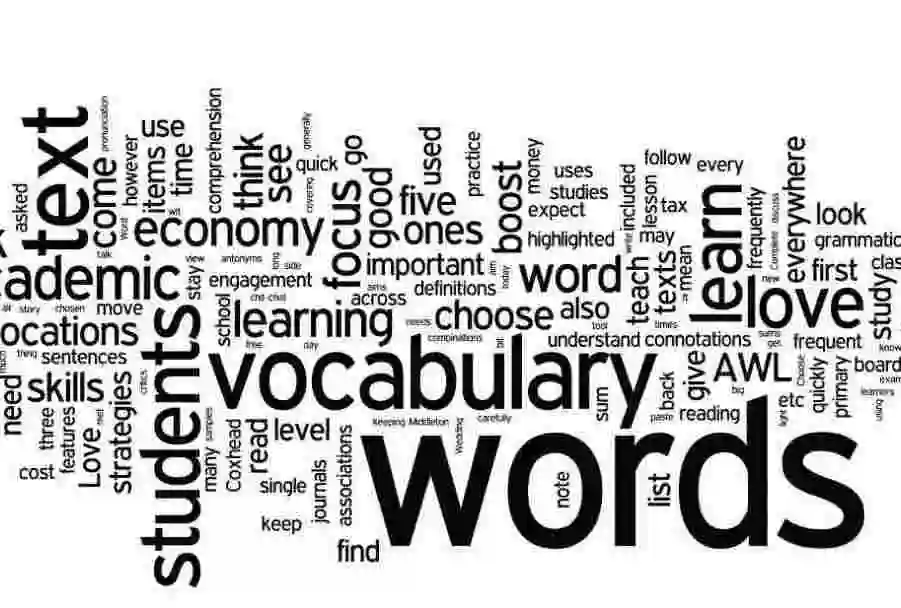Vocabulary mastery is a crucial aspect of a student’s academic journey. A rich vocabulary not only enhances communication skills but also plays a pivotal role in academic success. In this article, we will explore effective strategies to boost student vocabulary mastery, helping them excel in both written and spoken language.
The Power of a Strong Vocabulary
A robust vocabulary is like a treasure chest filled with valuable words. It enables students to express themselves more clearly and persuasively, leading to improved communication. Moreover, a well-developed vocabulary enhances reading comprehension, writing proficiency, and overall academic performance.
Start Early: Building Blocks of Vocabulary
1. Storytime
Begin at the earliest age with storytime. Reading aloud to young children introduces them to a diverse range of words and helps build a strong foundation. Engage in discussions about the story to reinforce understanding.
2. Word of the Day
Introduce a “Word of the Day” routine at home or in the classroom. Display the word’s meaning, usage, and pronunciation. Encourage students to use the word in a sentence throughout the day.
Middle School Mastery
3. Vocabulary Journals
Incorporate vocabulary journals into daily routines. Students can jot down new words they encounter in their reading and note their meanings. Regularly review and discuss these words to reinforce retention.
4. Games and Puzzles
Make learning fun with word games and puzzles. Crossword puzzles, word searches, and Scrabble are entertaining ways to expand vocabulary while sharpening cognitive skills.
High School Advancement
5. Synonyms and Antonyms
Introduce the concept of synonyms (words with similar meanings) and antonyms (words with opposite meanings). Encourage students to explore synonyms to enhance their vocabulary range.
6. Root Words and Affixes
Teach students about root words and affixes (prefixes and suffixes). Understanding these components can help students decipher the meanings of unfamiliar words by breaking them down into smaller parts.
Active Reading and Writing
7. Reading Diversity
Encourage students to diversify their reading material. Exposure to various genres, including fiction, non-fiction, and poetry, introduces them to a wide spectrum of vocabulary.
8. Writing Prompts
Use writing prompts to inspire students to incorporate new words into their compositions. Encourage them to experiment with vocabulary in creative ways.
Digital Tools and Resources
9. Vocabulary Apps
Leverage technology with vocabulary-building apps. Apps like Quizlet and Duolingo offer interactive exercises and quizzes to make learning engaging and convenient.
10. Online Dictionaries
Promote the use of online dictionaries and thesauruses. These resources provide instant access to word definitions, synonyms, antonyms, and pronunciation guides.
Consistency is Key
11. Daily Practice
Emphasize the importance of daily vocabulary practice. Consistency is key to vocabulary mastery. Set aside dedicated time for vocabulary exercises and review.
12. Vocabulary Challenges
Organize friendly vocabulary challenges or competitions among students. This fosters a sense of excitement and motivation to expand their word arsenal.
Teachers and Parents: Partners in Progress
13. Collaboration
Teachers and parents should collaborate to reinforce vocabulary learning. Regular communication ensures that students receive consistent support both at school and at home.
14. Celebrate Success
Acknowledge and celebrate students’ vocabulary milestones. Positive reinforcement boosts their confidence and motivation to continue expanding their vocabulary.
Vocabulary mastery is a lifelong skill that significantly impacts a student’s academic and professional journey. By implementing these strategies, educators and parents can empower students to build a robust vocabulary that will serve them well throughout their lives. Remember, it’s not about the quantity of words but the depth of understanding and effective usage that truly wows.
Incorporate these methods into your teaching or parenting practices, and watch your students and children transform into confident, articulate communicators with a vocabulary that truly wows.

